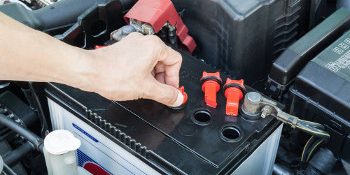There have been a lot of changes to battery technology over the past couple of decades, but people still believe the myths which have been in existence since the ‘90s. There are many who still believe that the limitations which existed before can still be found in the latest technologies.
Let’s debunk some of those myths and get to the truth about current battery technology:
Myth 1: Driving a car will completely charge the battery
There are three different factors which determine an alternator’s ability to charge the battery. Things to consider in determining how much your battery may recharge include:
- The magnitude of the current which is diverted from the alternator to the battery to charge it.
- The time period during which the current is available.
- The temperature outside.
Myth 2: A battery will never explode
Battery explosions can take place, both internally and externally. Recharging a wet-lead battery will produce oxygen and hydrogen gases. Sparks can occur when reconnecting or disconnecting the battery, the battery cables, or if the oxygen gas is ignited in any way.
Internal explosions usually take place when the engine is started or if any electrolytes are splattered over the plate. Another possibility is a defect in the plate-connecting straps. Periodic maintenance of all your battery’s components helps to reduce the issues that could lead to an explosion.
Myth 3: A battery doesn’t lose its charge while sitting in storage
Batteries come with a natural tendency to lose their charge over a certain period of time, even when they are inactive. This charge leakage can vary from 1 percent to 25 percent per month, and if the weather is extremely hot this process can get accelerated. A battery which is stored at 95°F will discharge twice as fast as one which is stored in 75°F.
Myth 4: Maintenance-free batteries do not require any maintenance
All weather conditions, whether cold or warm, can affect a battery. Thus, even if it was sold as a maintenance-free battery, it is worth checking it once in a while to be sure it has not been adversely affected by the weather conditions. The charge currents or an excessive charging voltage could cause the battery to lose its water. In warmer climates, non-sealed batteries are the best option as distilled water can be added if required.
Batteries play an important role in the smooth running of your vehicle so it is crucial that they are looked after.
Battery losing charge?
If you are having problems with your car’s battery life, it may be time for a check and perhaps even a replacement. If the issue persists, it may be worth seeking advice from a mechanic. At Double Dee Autos, we offer a range of diagnostic and vehicle repair services to help you get back on the road quickly and to stay on it for longer. If your car isn’t performing at its best, get in touch with our team by calling 020 8460 3040.

